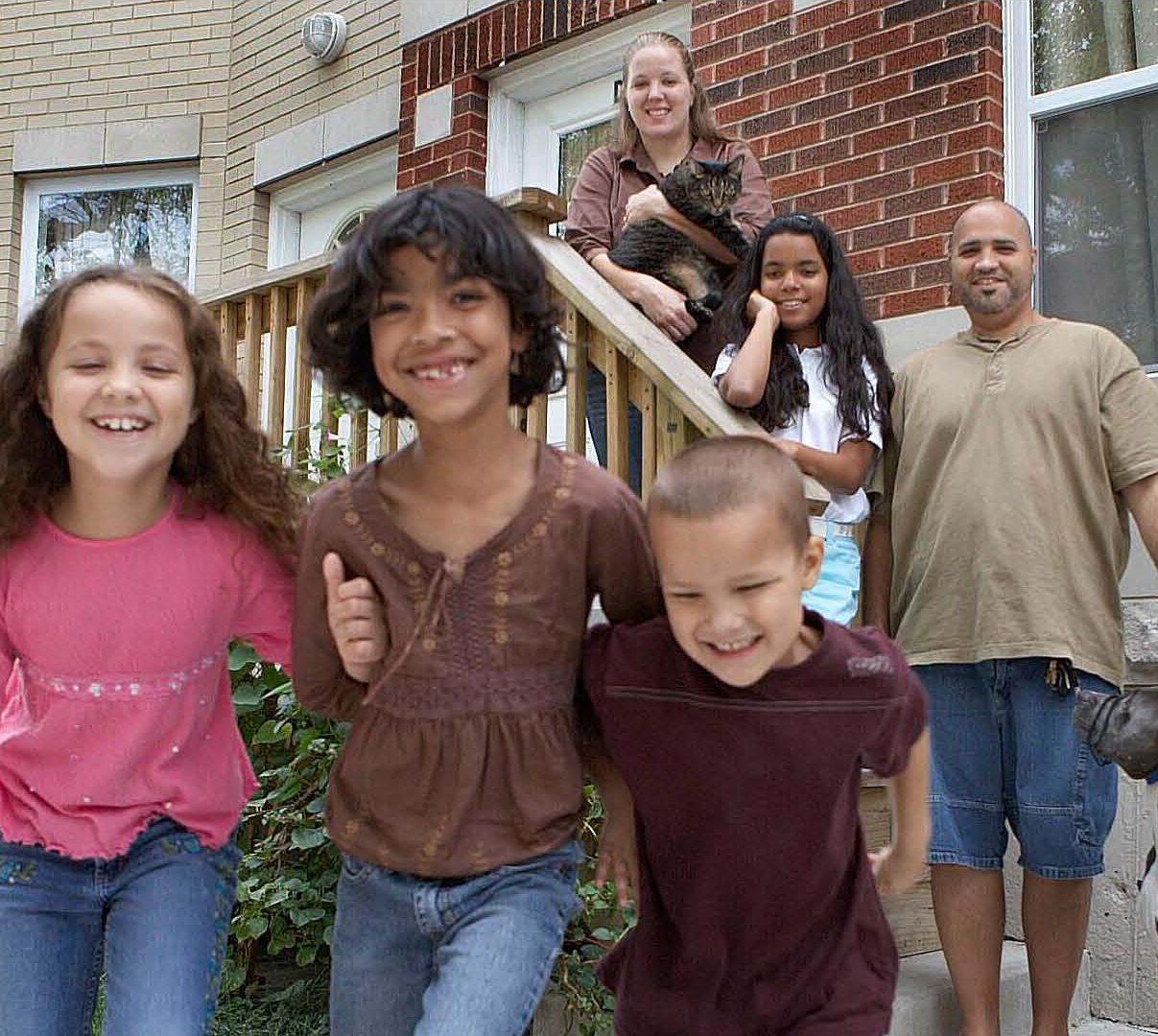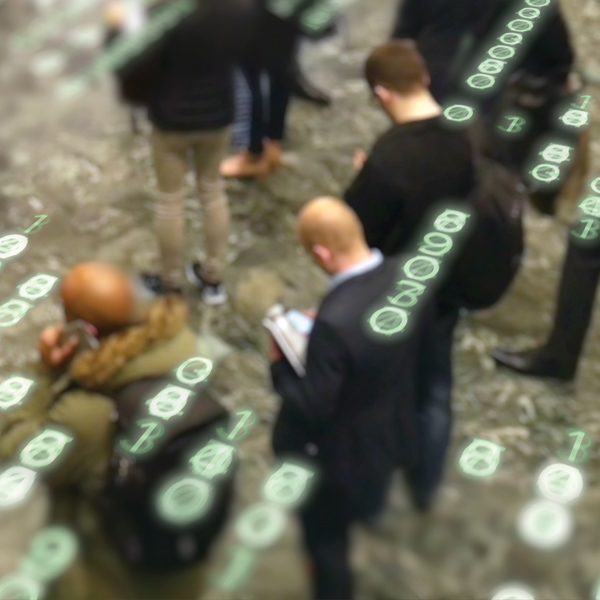John Palfrey writes about our commitment to our hometown, Chicago, and how our grantees met the moment in 2020 to begin creating a more equitable future.
Chicagoans responded to the daily threats of the COVID-19 pandemic, deep inequality, and systemic racism in our society with compassion and resolve. While 2020 tested us all in myriad ways, we saw our neighbors across the Chicago metropolitan region offer relief through mutual aid systems. We heard calls for heightened attention to the communities and populations that were most affected by the pandemic. And we grieved and felt pain and anger over the police-involved killings of Black Americans across the nation.
With all that we experienced and learned in 2020, MacArthur remains steadfastly committed to the city and region we call home. With renewed energy and conviction, we will contribute to the equitable recovery from the pandemic, and we will help to dismantle the structures and practices that uphold systemic racism.
We are grateful to our partners—including community-based organizations, peer funders, and an array of civic actors—for their immediate response to COVID-19 and ongoing commitment to serving our city and region, often stepping outside the bounds of their traditional work to meet the needs of their neighbors. We saw community development organizations open food pantries and violence prevention street outreach workers become trusted public health educators.
At MacArthur, we were privileged to offer resources and assist with emergency relief efforts addressing the health and economic impacts of the pandemic. Last year, we awarded 114 grants totaling $31.6 million in Chicago.
In March 2020, several of MacArthur’s grantmaking programs took steps to redirect uncommitted funds to COVID-19 relief. Support flowed to the Arts for Illinois Relief Fund, the Chicago Community COVID-19 Response Fund, the Chicago COVID-19 Journalism Fund, the Community Organizing Technology Funders Collaborative, the Illinois COVID-19 Response Fund, and Truth, Racial Healing, and Transformation.
In the spring and summer of 2020, as Chicago grappled with the stark racial disparities of COVID-19 on both our physical and economic health, anti-Black racism and violence at the hands of police and civilians seared our nation’s consciousness.
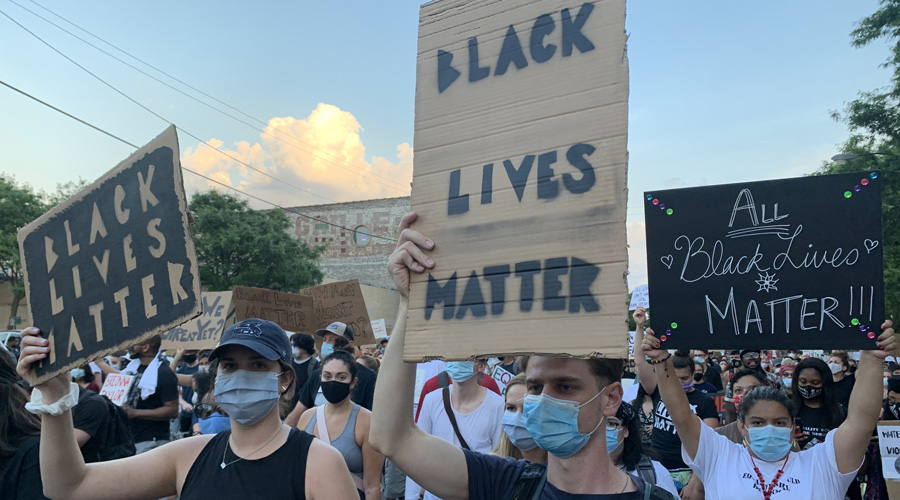
Protests in downtown Chicago.
To hasten an equitable recovery and to help reinvent systems, we raised an additional $125 million for grantmaking through the sale of bonds in the fall. Our goal in the Chicago region and across the globe is to have a transformative impact, in ways that center racial and ethnic equity.
Initial grants in the Chicago metropolitan area include the Chicago Racial Justice Pooled Fund, which builds and sustains movements for justice that center Black lives and address anti-Blackness, and the Together We Rise Fund, which will catalyze economic growth, mitigate the disproportionate impacts of COVID-19, and address racial inequities in the Chicago region.
Last fall, we also supported nonpartisan voter education and get-out-the-vote efforts through the Just Democracy Illinois collaborative. We joined the Ford Foundation, several local funders, and IFF in launching Chicago’s Cultural Treasures, which will facilitate the creation, preservation, and dissemination of art stemming from the traditions, leadership, and culture of people of color.
To determine how to deploy the remaining funds raised through the sale of bonds, we are seeking input from the communities we aim to support. We have convened a dozen external advisors to help guide this work. These Black, Indigenous, and People of Color leaders represent a wide array of issue expertise, lived experience, and geographic representation, including international understanding and perspectives deeply rooted in Chicago.
In addition to responding to the dual crises of the pandemic and racial injustice, our programs continued to pursue their grantmaking strategies in the Chicago metropolitan region. In 2020, much of this work was modified to aid grant recipients as they adapted their practices to operate under coronavirus conditions.
Special grants enabled recipients to obtain the technology and equipment they needed to work remotely. We invited organizations to present reports orally and to request extensions and budget modifications to their grants.
In an effort to aid local businesses and thank those who are working to keep our city running safely, our Meeting, Planning, and Events team worked with local restaurants and caterers led by people of color to send meals to essential workers, health care professionals, individuals experiencing homelessness, and families on Thanksgiving.
Chicago Commitment
Our Chicago Commitment program made packages of grants to support communities experiencing severe COVID-19 impacts, including Black-, Latinx-, and Native American-serving organizations. Through our Civic Partnership with 50 local donors, called the Partnership for Safe and Peaceful Communities (PSPC), we increased funds for gun violence prevention, directing additional dollars to organizations whose street outreach workers were helping their neighbors protect themselves from COVID-19.
After promising reductions in shootings in recent years, gun violence increased in 2020. Many experts believe the rise was an anomaly linked to the health, economic, and social effects of the pandemic combined with public mistrust of law enforcement. Other major American cities experienced similarly troubling spikes in gun violence. MacArthur is committed to maintaining support for the strategies pursued through PSPC and to seeing positive trends in community safety revived in 2021.
Our community economic development strategy, called Vital Communities, made place-based awards in communities hard hit by the pandemic, including Auburn Gresham, Belmont Cragin, Little Village, South Shore, and Washington Heights.
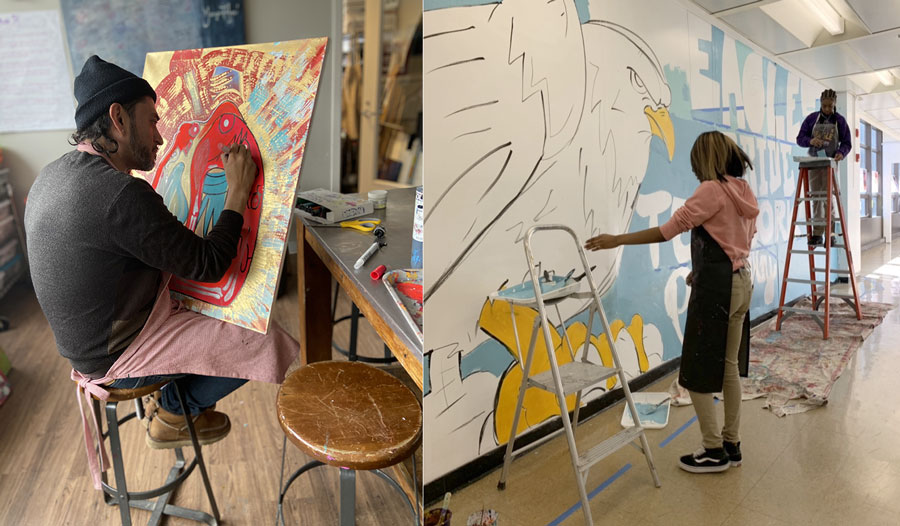
Broader Urban Involvement & Leadership Development (BUILD) supports young people impacted by violence through art programs.
In addition, our Culture, Equity, and the Arts program supported arts and culture organizations recommended by a participatory grantmaking panel applying criteria rooted in equity. And in partnership with the Field Foundation, we announced the second class of Leaders for a New Chicago, supporting individuals who bring a broad diversity of background and experience to their roles and whose influence will inform decision making across the city.
Climate Solutions
Our Climate Solutions team made a significant investment in the Chicago Environmental Justice Network. Through an award to the Little Village Environmental Justice Organization (LVEJO), the network will bolster the capacity of six neighborhood-based organizations that are led by, rooted in, and accountable to communities of color directly impacted by environmental harms.
In addition to LVEJO, the organizations are Blacks in Green in Woodlawn; Ixchel in Cicero; Neighbors for Environmental Justice in McKinley Park; People for Community Recovery in Altgeld Gardens; and Southeast Environmental Taskforce in the Calumet region. We hope that the Network’s purpose and approach will influence how other philanthropies craft their approaches to funding organizations focused on racial, environmental, and social justice.
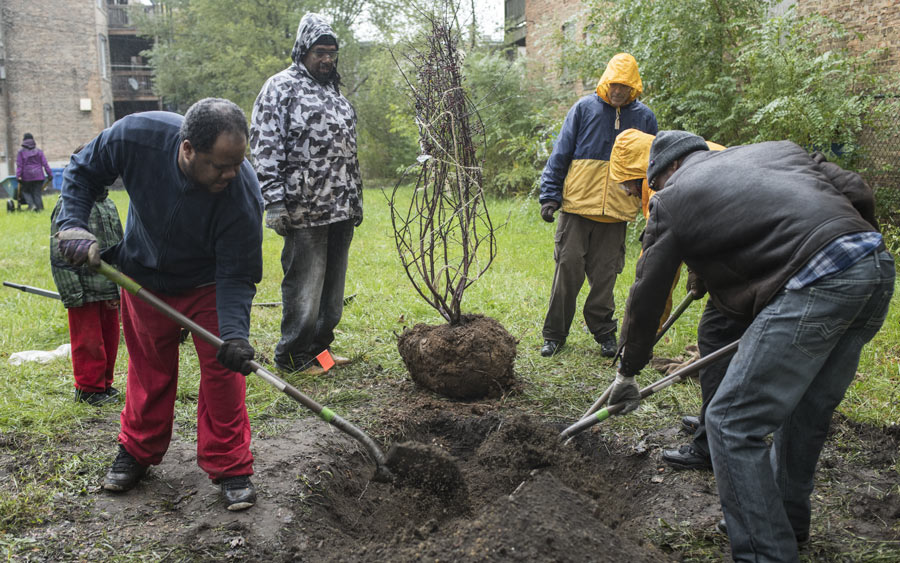
Blacks In Green, an organization part of the Chicago Environmental Justice Network, plants trees in a vacant lot in Woodlawn, Chicago.
In addition, the Illinois Environmental Council Education Fund will assist frontline community groups, especially those led by people of color, to engage in public education activities to further the City of Chicago's commitments toward more equitable and clean energy use.
Criminal Justice
Through its Safety and Justice Challenge, our Criminal Justice program continued to support efforts to reduce mass incarceration in Cook County. A key reform implemented in 2017, which ordered judges to set affordable bond amounts for defendants, came under attack in 2020 as some officials claimed that the practice led to the release of individuals who committed crimes while awaiting trial.
MacArthur grant recipients at Loyola University of Chicago’s Center for Criminal Justice Research, Policy and Practice debunked this allegation in a November 2020 study, finding that Cook County bail reforms have not led to an increase in violence or crime. The study was prominently cited by proponents of a sweeping criminal justice reform bill, recently passed by the Illinois legislature, which, among other things, eliminates cash bail in Illinois.
In collaboration with the Chicago Commitment and PSPC, the Criminal Justice program pursued the goals of reducing gun violence in Chicago. A renewal award to New York University’s Policing Project supported the Chicago Police Department in implementing a Neighborhood Policing Initiative that builds trust between officers and community members. The Criminal Justice program also continued support for Envisioning Justice, which invites the city’s residents to reimagine the criminal justice system.
Impact Investments
In response to the economic impact of the pandemic, our Impact Investments team deferred all principal and interest loan payments due in 2020, enabling borrowers to redirect those dollars to maintain their financial stability and respond to the COVID-19 crisis.
In partnership with IFF and FMA, which specializes in nonprofit financial management, we funded technical assistance and training to aid nonprofits and small businesses that applied for Payroll Protection Program loans. We also provided more than $8 million to help the City of Chicago implement the Small Business Resiliency Fund which delivered emergency loans to more than 1,700 small businesses in Chicago's hardest hit communities.
In addition, Impact Investments supported the Fund for Equitable Business Growth, which provides grants to improve sustainability and growth for entrepreneurs of color in the Chicago region, with an emphasis on Black and Latinx entrepreneurs.
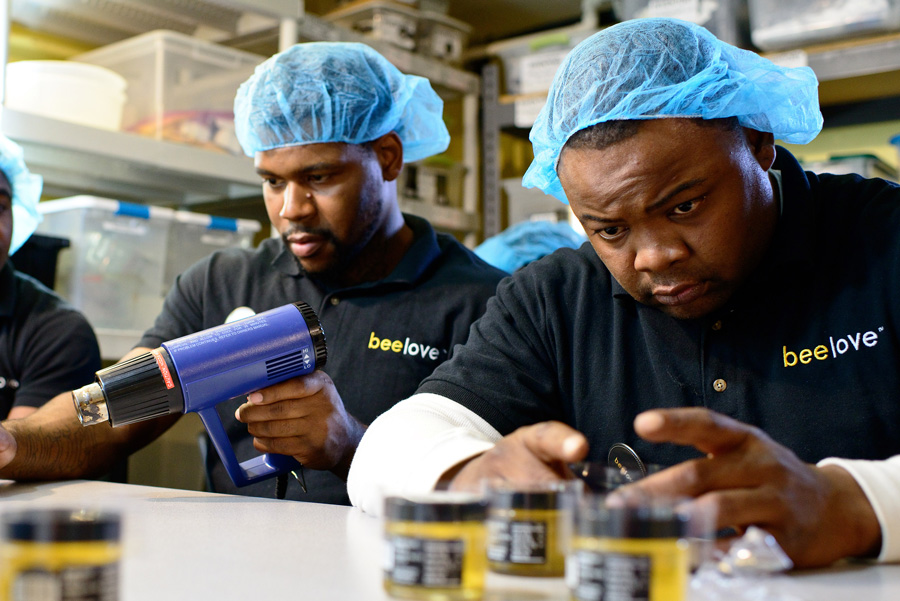
Employees prepare honey jars for Sweet Beginnings, an organization supported by Benefit Chicago.
The investment fund we established to support Benefit Chicago, our collaboration with the Chicago Community Trust and Calvert Impact Capital, continued making loans and investments—including support for DL3 Realty Advisors, whose development of a former Target in Morgan Park is expected to bring more than 500 jobs to the neighborhood.
Journalism & Media
Our Journalism & Media team continued its Media and Storytelling initiative in partnership with the Field Foundation. We jointly support nonprofit organizations whose goal is to tell the stories of all Chicagoans and to build a more racially equitable media environment.
In addition, Block Club Chicago received support to continue its accurate, nuanced, and comprehensive coverage of Chicago neighborhoods, particularly those on the South and West Sides. Injustice Watch received an award for its in-depth investigative reporting, with a focus on the justice systems in Cook County and throughout Illinois. Sisters in Cinema, which supports Black women and gender nonconforming leaders in the field of media, will apply grant funds to a new Media Arts Center in the South Shore neighborhood.
In addition to supporting the Chicago COVID-19 Journalism Fund, our Journalism & Media team co-hosted a seminar for local reporters on legal issues raised in covering the pandemic and civil unrest.
Technology in the Public Interest
Recognizing that new and emerging technologies are dramatically altering civil rights and civil liberties, and that artificial intelligence increasingly makes key decisions that impact individual lives, our Technology in the Public Interest (TPI) program supported the establishment of a network of technologists and community organizers in Chicago working to challenge surveillance practices. In partnership with the Crossroads Fund, the network will ensure historically marginalized people and communities play a meaningful role in the governance of new and emerging technologies.
In addition, TPI supported the American Civil Liberties Union of Illinois' work seeking to strengthen civil rights and civil liberties in the digital age, including ensuring that technology and data used to respond to COVID-19 in Illinois are deployed in a manner that advances equity and protects rights.
We began 2021 with renewed dedication to reimagining a more just and equitable world. We renew, once again, our enduring commitment to our home city of Chicago. We will work to achieve that vision in genuine partnership with the people and communities we hope to serve—following their lead and earning their trust as we strive to build a more inclusive Chicago.







